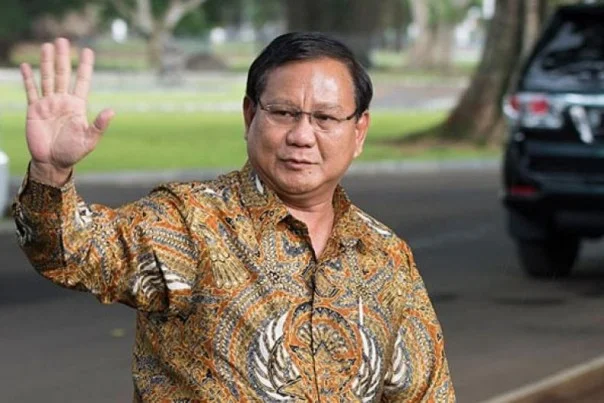President Prabowo Focuses on Law Enforcement in Eradicating Drugs
By: Silvia Anggun )*
President Prabowo Subianto, in his government’s commitment, emphasized the importance of strict law enforcement in combating drug trafficking and abuse in Indonesia. Efforts to eradicate drugs are a national priority agenda that requires integrated steps and involves various related agencies, including law enforcement, health institutions, education, and the wider community. As one of the biggest problems facing the nation, drug trafficking not only endangers the physical and mental health of individuals, but also threatens the social, economic, and moral resilience of the nation. Therefore, a comprehensive approach and effective policies are needed to stop the spread of this illicit substance and eradicate the criminal networks responsible behind it.
Executive Director of Indonesia Narcotic Watch (INW), Budi Tanjung said the agreement is similar to President Prabowo that no one is messing around with drugs anymore. This message is a strong signal for law enforcement institutions, especially the Police and the National Narcotics Agency (BNN), to strengthen their commitment and efforts in fighting drug crimes. Especially in terms of transparency and law enforcement against officers involved in drug networks. According to Budi Tanjung, Indonesia must not fall into the same trap.
In the midst of an increasingly complex situation, the government under President Prabowo’s leadership has prepared a number of concrete steps to eradicate drugs by involving several important elements in society and government. The main emphasis on strict law enforcement is the basis of policy to ensure that perpetrators, both users, dealers, and drug lords, receive appropriate sanctions. President Prabowo emphasized that this legal approach is not only repressive, but also oriented towards prevention and rehabilitation.
President Prabowo’s commitment to enforcing drug laws is not only limited to regulations and policies, but also in the form of support for improving facilities and infrastructure that support drug eradication. The provision of sophisticated drug detection equipment at borders, airports, and ports, for example, is one of the steps taken to strengthen supervision of the entry of drugs into Indonesian territory. In addition, law enforcement officers also receive training and capacity building to handle increasingly complex drug cases. President Prabowo realizes that the war on drugs requires large resources, so adequate budget allocation and logistical support are important in supporting this eradication effort.
On the other hand, member of the Indonesian House of Representatives from the National Democratic Party (NasDem) faction, Rudianto Lallo, assessed that President Prabowo Subianto must become the commander in chief of the eradication of corruption carried out by three law enforcement agencies, namely the Police, the Prosecutor’s Office, and the Corruption Eradication Commission (KPK).
In addition to strict law enforcement, President Prabowo also emphasized the importance of education and prevention among the community, especially the younger generation who are easy targets for drug trafficking. Drug prevention programs are designed with an educational approach, inviting the community to understand the negative impacts of drugs and avoid behavior that is vulnerable to substance abuse. The government works with educational institutions, community organizations, and the media to convey effective drug prevention messages that can be accepted by various groups in society.
Rehabilitation is also a focus in handling drug abuse. President Prabowo understands that drug users are victims of complex situations and environments, so they need to be given the opportunity to recover and return to functioning in society. Rehabilitation programs integrated with mental health services and social support are part of the government’s strategy in dealing with the drug problem.
At the international level, the Indonesian government under President Prabowo’s leadership has established cooperation with neighboring countries and international organizations to strengthen the cross-border drug eradication network. Drug trafficking is a global problem that involves international networks, so strong cooperation between countries is key to overcoming drug trafficking in Indonesia. President Prabowo emphasized the importance of cooperation in exchanging intelligence information, joint training, and joint operations that can capture cross-border drug networks. These efforts are also supported by regulations that allow for faster and more efficient action against international networks operating in Indonesia.
National Police Chief General Listyo Sigit Prabowo emphasized that drug eradication is an important step to support the Astacita mission initiated by President Prabowo Subianto and Vice President Gibran Rakabuming Raka. This mission highlights the need to strengthen reforms in politics and law, as well as an emphasis on preventing and eradicating corruption and narcotics as an effort to build a safe and prosperous society. The National Police Chief also instructed all police ranks, from the Headquarters to the Resort Police, to map drug distribution routes and take firm action against various modes of smuggling, including those controlled from within correctional institutions.
With various strategic steps that have been taken, President Prabowo’s government is trying to create a drug-free Indonesia and restore security and peace for all people. This epilogue reaffirms President Prabowo’s commitment to firmly enforcing the law, supported by strong prevention and rehabilitation programs, in order to achieve the goal of eradicating drugs comprehensively and sustainably. The success of drug eradication is expected to not only create a healthy and drug-free society, but also strengthen the integrity of the nation in the eyes of the world.
.)* The author is the editorial team of the Student Press Institute (LPM) Ideas
